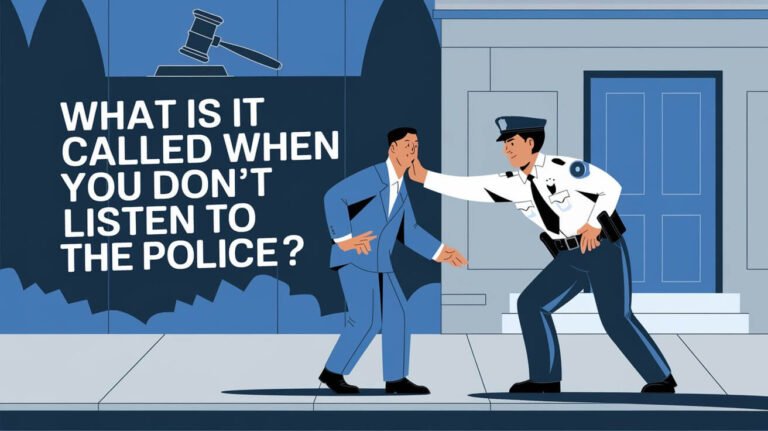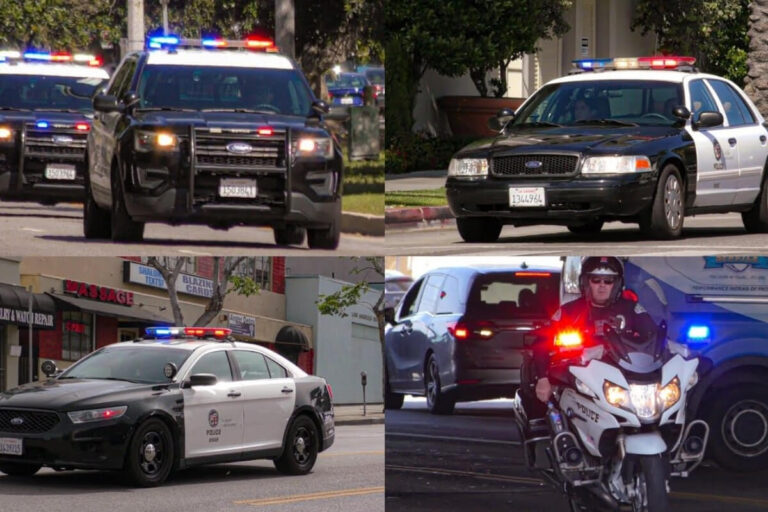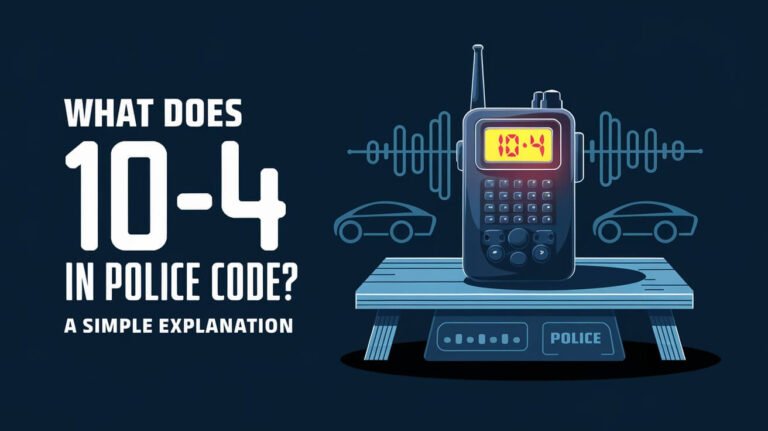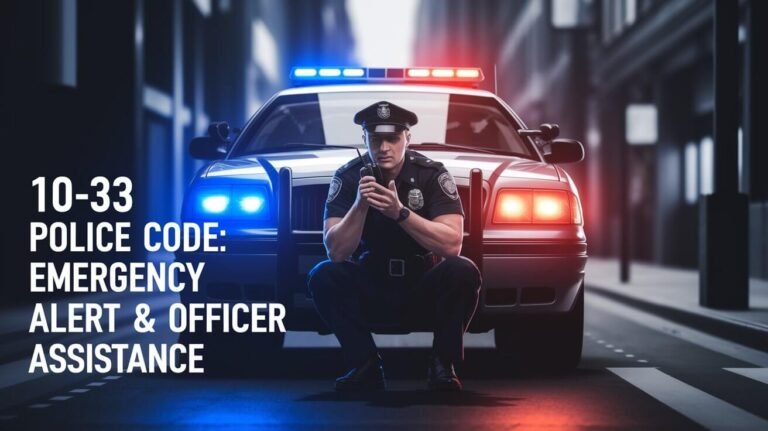Do You Get A Diploma For Passing Police Academy? in 2025

A police academy diploma is a big deal for those wanting to be cops. It shows they’ve passed a tough training program. This training helps them learn the skills needed to do their job well.
In the U.S., police academy lasts about five months. It covers important topics like how to work with the community. This training is key to becoming a certified police officer.
After finishing the academy, you get a diploma. This diploma is a big achievement. It shows you’ve worked hard to become a law enforcement officer.
Having a police academy diploma can really help your career. It shows you’re skilled and ready for the job. With more people needing police, having this diploma can give you an edge.
Police Academy Training Requirements
Police academy training needs differ by state. In California, you need a high school diploma or GED, be at least 21, and pass a background check. You must also meet physical fitness standards, like passing a physical agility test.
In California, becoming a police officer means a deep background check. This includes looking into your criminal and credit history, and checking your personal references. You also need a high school diploma or equivalent to start.
Basic Educational Prerequisites
To join a police academy, you usually need a high school diploma or GED. Some places might ask for college credits or a degree in a related field. You’ll also need to pass a background check and a physical fitness test.
Physical Fitness Standards
Physical fitness tests vary by state but are common. These tests check your ability to run, jump, and lift. You’ll also need a medical exam to make sure you’re fit for the job.
Background Check Requirements
Background checks are thorough. They look into your criminal, credit history, and personal references. You must also reveal any past convictions or arrests. And, you need to show you’re eligible to work in the U.S.
Academic Components of Police Training
The academic parts of police training are very important. The police academy teaches many subjects. These include criminal law, patrol procedures, and how to investigate.
Law enforcement training programs, like those at Rasmussen University, have a high success rate. Over 90% of first-time test takers pass the Minnesota Peace Officer Licensing exam.
Some key subjects in the police academy curriculum are:
- Criminal law
- Patrol procedures
- Investigative techniques
- Emergency vehicle operations
- Use of force
These subjects help officers understand their duties well. Police officer education is key to their training. Law enforcement training programs are vital in preparing officers for their careers.
Police training also uses different teaching methods. These include lectures, discussions, and hands-on training. These methods help officers learn and grow.
The goal of police academy curriculum is to equip officers with the skills needed for their jobs. It aims to prepare them for a successful career in law enforcement.
Police Academy Certification Process
The police academy certification process is key to becoming a certified law enforcement officer. It involves finishing training courses and meeting certain requirements. The process includes state rules, national standards, and checking the officer’s training and experience.
In the United States, police certification rules differ by state. For instance, in Pennsylvania, officers get certified by passing a basic training course approved by the Commission. The process also includes a written test and a physical fitness test.
State-Specific Requirements
Requirements can vary. For example, California requires 664 hours of training.
National Standards
These standards include passing a written exam and a physical fitness test.
POST Certification Details
The POST certification process reviews the officer’s training and experience. It also includes a background check. To get certified, officers must complete the required training hours and pass the certification exam.
Important points about the police academy certification process are:
- Completing a minimum number of training hours
- Passing a written exam and a physical fitness test
- Meeting state-specific requirements
- Undergoing a background investigation
Types of Police Academy Credentials
Police officers can get many credentials like diplomas, certificates, and badges. These are important for their career growth. A diploma from a police academy shows they’ve made it a step closer to being a certified officer. Certificates and badges are for special skills gained through training and experience.
Some important police academy credentials are:
- Police officer diplomas, which show they’ve finished a police academy program
- Law enforcement certifications, which prove they’re skilled in certain policing areas
- Specialized certificates, like for crisis negotiation or forensic science
- Badges, which show their authority and skill in law enforcement
These credentials are key for moving up in their careers. They show they’re dedicated to learning and improving in law enforcement. With more police jobs coming up, having the right credentials can really help.
| Credential | Description | Requirements |
|---|---|---|
| Police Officer Diploma | Completion of a police academy program | High school diploma, police academy training |
| Law Enforcement Certification | Verification of expertise in a specific area of policing | Specialized training, experience |
| Specialized Certificate | Demonstration of expertise in a specific area, such as crisis negotiation | Specialized training, experience |
Post-Academy Professional Documentation
After finishing police academy, officers get important documents. These include official certificates, badge credentials, and awards from their department. These are key for their career. Certifications from the state’s POST organization are very important for special jobs or promotions.
To get these documents, officers go through a lot. They have a background check, tests to see if they can read and write well, and a medical check. They also have a psychological test to see if they’re right for the job. These steps help make sure officers can do their job well.
Official Certificates
Getting a diploma from the police academy is a big step. It shows an officer is certified. This diploma is recognized by police everywhere in the state.
Badge Credentials
Badge credentials are also very important. They show an officer has special training and experience. They are often shown on the officer’s uniform or badge.
Department-Specific Awards
Police department awards are also key. They are given for outstanding service or bravery. These awards help officers move up in their careers.
Some examples of police department awards include:
- Medal of Valor
- Medal of Merit
- Commendation for Bravery
- Commendation for Exceptional Service
These awards show an officer’s hard work and dedication. They are important in their career and certifications.
Career Advancement with Police Academy Credentials
Police officers with academy credentials have many career paths to explore. They can move up to promotions, specializations, and leadership roles. Getting a diploma from a police academy is a big achievement. It shows they are on their way to becoming certified officers.
With more experience and training, officers can focus on specific areas. This includes detective work, SWAT teams, or K-9 units. They can also take on leadership roles, like sergeant or lieutenant. This is a big step in their career.
For those aiming to climb the ranks, career development is key. The Bureau of Labor Statistics says police and detective jobs will grow 7 percent by 2026. In 2017, police and detectives made a median of $62,960 nationally. In California, the mean annual wage was $100,090, showing the value of police academy credentials.
Police academy credentials offer many benefits. They open up more job opportunities and allow for specialization. Officers can also move into leadership roles and earn higher pay and benefits.
Overall, police academy credentials are vital for career growth. With the right training and experience, officers can reach new heights in their careers.
| State | Mean Annual Wage | Mean Hourly Wage |
|---|---|---|
| California | $100,090 | $48.12 |
| United States | $62,960 | $30.27 |
State Variations in Police Academy Recognition
Police academy recognition changes a lot from state to state. Some states have agreements that let officers move their certification easily. Others have strict rules for transferring. Knowing these differences is key for officers thinking about moving.
Law enforcement certification reciprocity makes it easier for officers to start their career in a new place. It lets them bring their certification with them.
Police officer transfer requirements can be tricky. Each state has its own rules and steps. Some might need extra training or a certain degree. For example, some states want an associate’s degree after basic training, while others have different rules.
To figure out these differences, officers should look into the state they want to move to. They can talk to the state’s law enforcement agency or certification board. This way, they can plan their move and make sure it goes smoothly.
| State | Reciprocity Agreement | Transfer Requirements |
|---|---|---|
| California | Yes | Additional training required |
| New York | No | Specific certification requirements |
| Florida | Yes | No additional training required |
Additional Certifications Beyond Basic Training
Police officers can get more certifications than just basic training. They can take specialized training and advanced courses. These programs include law enforcement advanced training and police academy specialized training.
To become a specialized officer, one can get certifications in crisis negotiation, hostage rescue, and SWAT operations. These certifications show an officer’s expertise and dedication to law enforcement.
- Crisis negotiation certification: This certification is for officers who want to specialize in crisis negotiation and conflict resolution.
- Hostage rescue certification: This certification is for officers who want to specialize in hostage rescue and tactical operations.
- SWAT operations certification: This certification is for officers who want to specialize in SWAT operations and tactical response.
These extra certifications improve an officer’s skills and knowledge. They also offer chances for career growth and specialized roles in law enforcement. By taking law enforcement advanced training and police academy specialized training, officers can keep up with new techniques and best practices.
In Closing: Police Academy Achievement Recognition
Finishing a police academy program is a big deal in the law enforcement world. It shows a person’s hard work and skill. They learn to protect and serve their community well.
Having a police academy diploma shows a person’s dedication and discipline. It proves they know the important skills needed for law enforcement.
Officers with a police academy credential can grow in their careers. They can get special certifications and keep learning. This opens up new chances for them in law enforcement.
Whether they want to be a patrol officer, investigator, or part of a specialized unit, a police academy certification is key. It shows they are committed to doing great work. It proves they are ready to meet the law enforcement standards.
Common Questions
Do you get a diploma for passing police academy?
Yes, getting a diploma from police academy is a big deal. It shows you’ve made it through tough training and are ready to serve as a certified police officer.
What are the police academy training requirements?
To start, you need a high school diploma or something similar. You must also be at least 21 years old and pass a background check. Plus, you have to meet certain physical fitness standards.
What are the academic components of police training?
The classes cover important topics like criminal law, how to patrol, and how to investigate. These courses help officers learn the skills they need to do their job well.
What is the police academy certification process?
The certification process has a few steps. First, you meet state and national standards. Then, your training and experience are reviewed, along with a background check.
What types of police academy credentials can officers earn?
Officers can get diplomas, certificates, and badges. These are important for their career growth and show they’ve completed rigorous training.
What professional documentation do officers receive after completing police academy training?
After training, officers get official certificates and badge credentials. They also receive awards from their department. These documents are key to their professional development.
How can police officers with academy credentials advance their careers?
Officers can move up by getting promotions, specializing in certain areas, or taking on leadership roles. Their academy credentials and extra training help them grow in their careers.
How does police academy recognition vary by state?
Recognition can differ from state to state. Some states have agreements that let officers move easily between states. Others have rules that make it harder.
What additional certifications can police officers earn beyond basic training?
Officers can get extra training in areas like crisis negotiation, hostage rescue, and SWAT operations. They can also get training for leadership roles or command positions.






